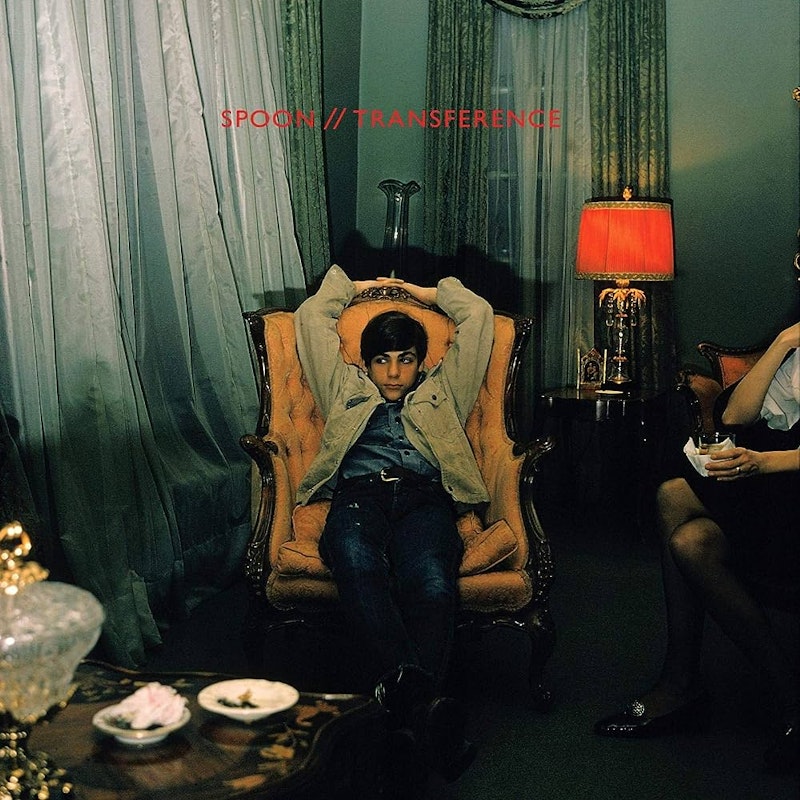The lyrics to “The Mystery Zone” are the contents of a junk drawer upended in zero gravity, floating in space. Britt Daniel sings these not as vaporous mysteries beyond his grasp, but as tangible—sometimes contradictory—facts. But before anything is allowed to spill free, the Spoon frontman barks an order at us, his hands (figuratively) open and arranged into a camera frame: “Picture yourself.” Here’s the complete lyric: “Picture yourself, set up for good in a whole other life.”
The bass lines tumble in place. The guitars gnaw and scrap. Pianos and keyboards heighten an inherent, not-quite coherent sense of drama and broaden the song’s melodic logic, splashing and honking. Jim Eno’s drums trundle, thump, and snap like a freight train, steady and patient but chugging towards a horizon shrouded in haze, a mirage. Windows open, but doors don’t close.
The production is claustrophobic until, suddenly—did we even notice this the first five or 50 plays?—the drop-top roof fully retracts, the sky rushes in, Barstow so close now and acid taking hold. “Wooo!” Daniel exclaims, or his avatar does, neither cheerleader nor substitute Ric Flair but maybe a wannabe Prince or a reluctant, failed guru. “Uh-huh.” He’s running a pitch meeting he doesn’t want to run, trying to sell himself, the sale slipping away from the room.
There are a lot of famous pop songs about death and dying. “The Mystery Zone” isn’t one of them. It’s a bleary, propulsive blues about disappearance and transformation, about external silences and how their meanings don’t really matter. (Fictions solidify and shatter, emotions phase in and out of legibility, the past quavers, mirage-like. What?) Things do go missing all the time, but Daniel’s protagonist projection is singing about other people, and himself. The mystery zone is what we don’t understand about an absolute absence of acknowledgment and can’t comprehend until we’re ultimately lost to the same feeling or place. One minute you’re one person, and then you are another; this isn’t necessarily growing up, but maybe it is.
Towards the end of Lord of the Rings: Return of the King, watch Frodo’s face. He smiles benignly, yet that smile is pained and teary. He doesn’t quite relate or connect. He no longer belongs in the Shire. And then, in a few shakes of a screenplay, he’s gone forever. Mass-market Hollywood storytelling—I haven’t read the novel— insists on smoothing these transitions; real life can’t be bothered with that shit.
Death hurts until hurt turns into aching, but death is at least final, absolute. “The Mystery Zone” and the mystery zone thrive on the inconclusive: ambiguity as serial killer or cult or ascension to somewhere better, somewhere new. It’s ultimately up to the listener to decide whether what’s approaching is positive or negative—what it means to be unheard from or unseen beyond a certain point in time. The unanswered letter or email or text or phone call. The instant message viewed but left unacknowledged. The nuptials that, looking back, represent a cutoff point.
“The Mystery Zone” ends before it can end: a pretty clear signal that, like it or not, Spoon’s protagonist has crossed over, out of the picture, somewhere beyond the beyond, on another level of the tower.

